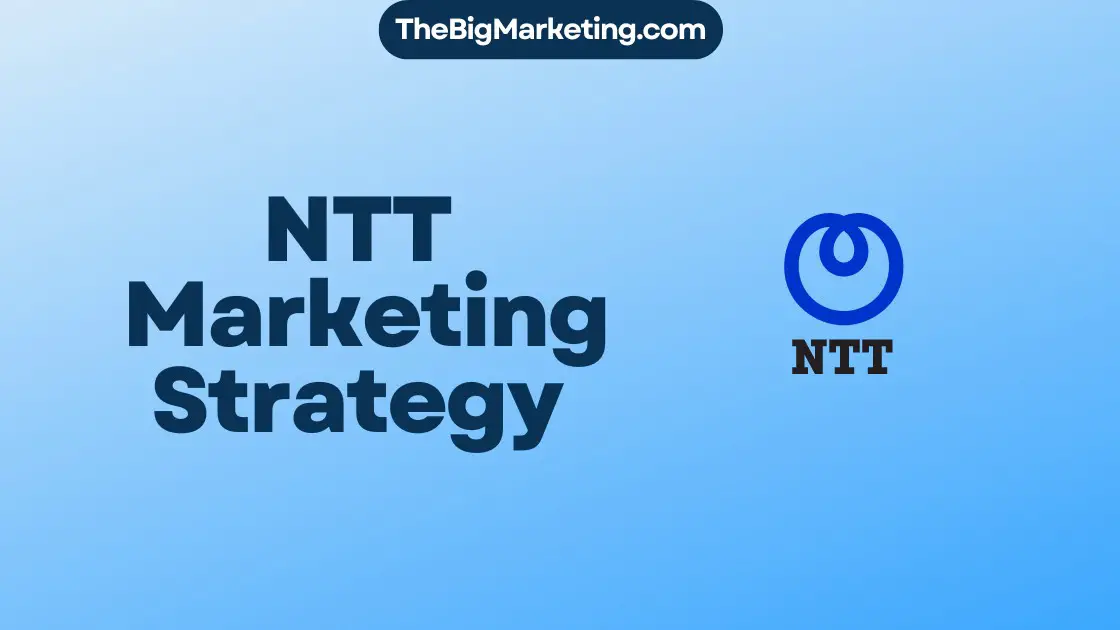Marketing companies play a crucial role in helping businesses succeed in today’s competitive digital landscape. But what exactly does a marketing company do? From providing digital marketing solutions to managing advertising campaigns, marketing companies offer a wide array of services to help businesses reach their target audience, enhance their brand image, and drive growth.
One of the main services offered by marketing companies is the development of effective branding strategies. They work closely with businesses to understand their unique value proposition and target market, and then create a compelling brand identity that resonates with their audience. This includes everything from designing logos and color palettes to crafting brand messaging.
In addition to branding, marketing companies also excel in market research analysis. They gather data on consumer behavior, market trends, and competitor strategies to provide businesses with valuable insights. These insights help businesses make informed decisions and develop marketing campaigns that are tailored to their target audience.
Another key area of expertise for marketing companies is managing advertising campaigns. They utilize various channels such as social media, search engines, and display networks to create and execute targeted advertising campaigns that drive traffic and generate leads for businesses. By optimizing ad placements, messaging, and targeting parameters, marketing companies ensure that businesses get the most out of their advertising budgets.
Furthermore, marketing companies offer a range of digital marketing solutions to help businesses establish their online presence. This includes search engine optimization (SEO), content marketing, social media marketing, and website design and development. By leveraging these digital strategies, marketing companies help businesses attract and engage their target audience effectively.
In summary, marketing companies provide a comprehensive suite of services to help businesses navigate the complex world of marketing. From crafting branding strategies to managing advertising campaigns and offering digital marketing solutions, marketing companies are instrumental in driving business growth and success.
Key Takeaways:
- Marketing companies offer various services such as branding strategies, market research analysis, and advertising campaign management.
- They help businesses establish their brand identity, understand their target market, and develop effective marketing campaigns.
- Marketing companies excel in digital marketing solutions such as SEO, content marketing, and social media marketing.
- They help businesses optimize their advertising efforts through targeted campaigns on multiple channels.
- Working with a marketing company can lead to improved brand exposure, increased website traffic, and higher conversion rates.
Understanding the Role of a Marketing Agency
When it comes to navigating the ever-evolving landscape of marketing strategies and driving business growth, a marketing agency plays a crucial role. These agencies are equipped with the expertise and resources to assist businesses in developing effective marketing strategies that align with their goals. Let’s explore the various responsibilities and key elements that define the role of a marketing agency.
Business Growth and Marketing Strategies
A primary focus of a marketing agency is to contribute to the growth and success of a business. They collaborate with clients to understand their unique offerings, target audience, and objectives. Armed with this knowledge, marketing agencies work towards creating comprehensive marketing strategies that establish and enhance the brand identity, amplifying its presence in the market.
Branding and Advertising Campaigns
Marketing agencies are responsible for managing branding efforts, helping businesses build a strong and recognizable brand. Through careful analysis and understanding of the target audience, these agencies develop strategic advertising campaigns that resonate with potential customers, drive engagement, and create brand loyalty.
Market Research Analysis and Optimization
An essential aspect of a marketing agency’s role is conducting market research analysis. By keeping a close eye on market trends, industry insights, and competitor analysis, these agencies generate valuable data-driven recommendations. Utilizing this information, marketing agencies optimize marketing tactics, ensuring the highest possible return on investment.
In the era of digital marketing, agencies leverage technology and analytical tools to monitor and measure campaign performance. This allows them to implement changes and improvements that enhance marketing strategies, ensuring maximum impact and effectiveness.
| Key Responsibilities of a Marketing Agency |
|---|
| Developing and implementing marketing strategies |
| Managing branding efforts and enhancing brand identity |
| Creating effective advertising campaigns |
| Conducting market research analysis |
| Optimizing marketing tactics for maximum ROI |
Partnering with a marketing agency empowers businesses to navigate the complexities of marketing strategies, allowing them to focus on their core operations. These agencies play a pivotal role in helping businesses effectively communicate their message to the target audience, generate leads, and drive sustainable business growth.
Types of Marketing Companies
When it comes to marketing, businesses have a variety of options to choose from. Different types of marketing companies specialize in specific areas, catering to the diverse needs of businesses in today’s digital landscape.
Traditional marketing firms are established entities that focus on offline marketing channels. These firms excel in leveraging print, television, and radio advertisements to reach and engage with a wide audience.
On the other hand, digital marketing firms specialize in online marketing strategies. They are experts in utilizing digital platforms such as search engine optimization (SEO), social media marketing, and email marketing to drive targeted traffic and increase brand visibility.
Hybrid marketing firms offer a combination of offline and online marketing strategies. They recognize the importance of a multi-channel approach and create comprehensive marketing campaigns that seamlessly integrate both traditional and digital tactics.
Full-service agencies provide end-to-end marketing solutions. These agencies have the capabilities to handle all aspects of a marketing campaign, from strategy development to execution. They offer a wide range of services and expertise to ensure businesses have a comprehensive and cohesive marketing approach.
For businesses looking for specialized expertise and unique marketing solutions, boutique agencies are an ideal choice. These agencies focus on specific industries, niches, or campaign types, offering tailor-made solutions to support businesses’ specific goals.
Each type of marketing company brings its own strengths and advantages to the table. Depending on the needs and goals of a business, they can choose the type of marketing firm that aligns best with their requirements. By partnering with the right marketing company, businesses can leverage their expertise and resources to drive effective marketing campaigns and achieve their desired results.
Services Provided by Marketing Companies
Marketing companies offer a wide range of services to cater to the diverse needs of their clients. Whether you’re looking for digital marketing agency services or more traditional marketing solutions, these companies have got you covered. Let’s explore some of the key services offered by marketing companies:
Digital Marketing Services:
Digital marketing agencies specialize in online marketing strategies to help businesses effectively reach their target audience in the digital space. Some of the key digital marketing services offered include:
- Search Engine Optimization (SEO): Optimizing your website’s visibility and ranking in search engine results.
- Pay-Per-Click (PPC) Advertising: Running targeted ads that drive traffic to your website, with payment based on clicks.
- Content Marketing: Creating and distributing valuable content to attract and engage your target audience.
- Social Media Marketing: Leveraging popular social media platforms to promote your brand and connect with your audience.
- Web Design: Creating visually appealing and user-friendly websites to enhance your online presence.
Traditional Marketing Services:
Traditional marketing agencies still play a significant role in reaching offline audiences and implementing tried-and-tested marketing strategies. Some of the traditional marketing services offered include:
- Print Advertising: Designing and placing advertisements in print publications such as newspapers and magazines.
- Public Relations: Managing your brand’s public image through media relations, press releases, and events.
- TV Advertising: Creating and airing commercials on television networks to reach a wider audience.
- Direct Mail: Sending targeted promotional material directly to potential customers’ mailboxes.
While these are just a few examples, marketing companies tailor their services to meet the specific needs and goals of their clients. Whether you’re focusing on digital marketing or prefer a more traditional approach, partnering with a marketing agency can provide the expertise and resources to drive your business forward.
Cost of Hiring a Marketing Agency
When it comes to hiring a marketing agency, the cost can vary depending on several factors. These include the type of agency, the specific services required, and the scope of the project. For small-to-midsize businesses, the pricing typically ranges from $51 to $10,000 per month for marketing agency services. On the other hand, larger companies may invest hundreds of thousands of dollars monthly to support their marketing efforts.
It is important to note that these figures are just a general guideline and not an exact representation of the costs associated with hiring a marketing agency. Each agency will have its own pricing structure and may provide customized services tailored to the specific needs of the client.
To get a more accurate price estimate for your business, it is advisable to request a custom quote from a marketing firm. This way, you can discuss your requirements in detail and receive a personalized cost breakdown that aligns with your budget and marketing goals.
Factors Affecting the Cost:
Several factors contribute to the varying costs of marketing agencies:
- The type of agency: Different types of marketing agencies may have different pricing structures based on the services they specialize in and their level of expertise.
- The services required: The specific marketing services you need will impact the overall cost. Digital marketing services such as SEO, PPC, and social media marketing may have different pricing than traditional marketing services like print advertising or public relations.
- The scope of the project: The size and complexity of your marketing project can influence the pricing, as more extensive campaigns may require additional resources and effort from the agency.
- The duration of the engagement: Whether you require a short-term campaign or an ongoing marketing partnership can also affect the price, as longer-term commitments may involve negotiated rates and discounts.
By considering these factors and requesting a personalized quote, you can gain a better understanding of the specific cost implications associated with hiring a marketing agency. This will help you make an informed decision that aligns with your budget and business objectives.
Benefits of Working with a Marketing Agency
Collaborating with a marketing agency provides numerous advantages for businesses, allowing them to leverage the expertise and resources of industry professionals. By partnering with a marketing agency, businesses can tap into a wealth of knowledge and experience, enabling them to achieve their marketing goals effectively.
Industry Expertise
One of the primary advantages of working with a marketing agency is their industry expertise. Marketing agencies have in-depth knowledge of various industries and can provide valuable insights tailored to specific business needs. Their understanding of market trends, consumer behavior, and competitor analysis allows them to develop targeted strategies that resonate with the target audience.
For example, a marketing agency specializing in the healthcare sector can create tailored marketing campaigns that adhere to industry regulations while effectively reaching patients and healthcare professionals. This industry-specific expertise ensures that businesses receive the most relevant and effective marketing strategies to drive growth and maximize their return on investment.
Time Savings
Managing marketing efforts can be time-consuming and distract businesses from their core operations. By partnering with a marketing agency, businesses can offload the responsibility of executing marketing campaigns and instead focus on their core competencies. This time savings allows businesses to allocate their resources more efficiently, leading to increased productivity and growth.
Instead of spending time researching market trends, developing marketing strategies, and analyzing campaign data, businesses can rely on the expertise of a marketing agency, who will handle these tasks on their behalf. This frees up valuable time for businesses to focus on their products, services, and customer satisfaction, ultimately driving their overall success.
Access to Resources
Marketing agencies have access to a wide range of resources and tools that may not be available in-house. Whether it’s cutting-edge marketing software, industry databases, or a large network of media contacts, marketing agencies can leverage these resources to enhance campaign performance and provide unique opportunities.
For instance, a marketing agency with strong relationships with media outlets can secure advantageous advertising rates or placements, amplifying the reach and impact of a campaign. By tapping into these external resources, businesses can benefit from enhanced marketing capabilities that are typically beyond their reach, resulting in more impactful and successful campaigns.
Measurable Results
One of the key advantages of working with a marketing agency is the ability to measure and track the results of marketing campaigns. Marketing agencies utilize various metrics and key performance indicators to evaluate the success of campaigns, providing businesses with tangible data and insights.
By analyzing data such as website traffic, click-through rates, conversions, and customer engagement, business owners can gain a deeper understanding of the effectiveness of their marketing efforts. This data-driven approach allows for data-backed decision-making and enables businesses to refine and optimize their strategies for improved results.
In summary, partnering with a marketing agency offers businesses a wealth of advantages, including industry expertise, time savings, access to resources, and measurable results. These benefits enable businesses to leverage the knowledge and capabilities of marketing professionals, driving growth, and achieving their marketing objectives.
How to Choose a Marketing Firm
When it comes to selecting a marketing firm for your business, there are several important factors to consider. Making the right choice will ensure a successful partnership and drive your marketing efforts towards achieving your goals. Here are some key points to keep in mind:
1. Industry Experience
It is crucial to work with a marketing agency that has relevant industry experience. A firm with knowledge and expertise in your specific field will have a better understanding of the dynamics and challenges you face. They will be equipped to develop effective marketing strategies tailored to your industry’s trends and demands.
2. Target Audience Expertise
Look for a marketing firm that demonstrates a deep understanding of your target audience. They should have experience reaching and engaging your specific customer base. By leveraging their expertise, the agency can develop targeted campaigns that resonate with your audience, maximizing the impact of your marketing efforts.
3. Budget
Consider your budget when choosing a marketing agency. It is essential to find a firm whose pricing aligns with your financial resources. While it’s important not to compromise on quality, finding a balance between your budget and the services offered by the agency is crucial for a sustainable partnership.
4. Communication
Effective communication is the key to a successful relationship with a marketing firm. Look for an agency that values open and transparent communication. Regular updates, clear reporting, and a collaborative approach will ensure that both parties are aligned and working towards shared objectives.
5. Track Record and Testimonials
Research the reputation and track record of the marketing firms you are considering. Look for testimonials or case studies that highlight their successful campaigns and satisfied clients. This will give you confidence in their ability to deliver results and meet your marketing goals.
| Factors to Consider | Rating (1-5) |
|---|---|
| Industry Experience | 5 |
| Target Audience Expertise | 5 |
| Budget Alignment | 4 |
| Communication | 5 |
| Track Record and Testimonials | 4 |
By considering these factors, you can make an informed decision when choosing a marketing firm. Remember, selecting the right agency with industry experience, target audience expertise, budget alignment, and effective communication will set the stage for a successful partnership and drive your marketing efforts towards achieving your business goals.
The Role of a Marketing Firm in Achieving Business Goals
A marketing firm plays a vital role in helping businesses achieve their goals. By collaborating closely with clients, marketing firms gain a deep understanding of their industry, target audience, and past marketing efforts. Leveraging their extensive industry knowledge, marketing firms develop customized marketing strategies to maximize performance and drive business growth. These strategies are backed by comprehensive data analysis and research, allowing marketing firms to provide valuable data-backed recommendations.
With their industry expertise, marketing firms offer valuable insights and guidance, assisting businesses in reaching their specific business goals. Whether it’s increasing brand visibility, driving website traffic, or generating leads, marketing firms tailor their strategies to align with their clients’ objectives. Through a collaborative approach, marketing firms help businesses navigate the complex world of marketing and leverage the most effective strategies to achieve their desired outcomes.
The marketing firm’s role extends beyond strategy development. They also play a crucial part in implementing, monitoring, and optimizing marketing efforts to ensure optimal results. Marketing firms continuously analyze data and key performance indicators to measure the success of marketing campaigns, making data-driven adjustments to enhance performance and increase return on investment (ROI).
Ultimately, partnering with a marketing firm provides businesses with a competitive edge. By leveraging industry knowledge, staying abreast of emerging trends, and utilizing data-backed recommendations, marketing firms empower businesses to make informed decisions and drive success in their marketing endeavors.
The Importance of Industry Knowledge
One of the key factors that sets marketing firms apart is their deep industry knowledge. Through years of experience and continuous learning, marketing firms stay up-to-date with the latest trends, strategies, and best practices in the industry. This knowledge allows them to develop tailored marketing strategies that resonate with the target audience and align with the unique needs of the business.
Industry knowledge enables marketing firms to understand market dynamics, consumer behavior, and competitive landscapes. This understanding enhances their ability to develop effective marketing campaigns that stand out and drive meaningful results. It also enables them to provide valuable insights and recommendations based on real-world data and industry benchmarks.
Developing Effective Marketing Strategies
Marketing firms leverage their industry knowledge and client collaboration to develop effective marketing strategies. These strategies are tailored to align with the client’s goals, target audience, and available resources. Marketing firms take into account various factors such as market trends, customer behavior, and competitive analysis to formulate strategies that resonate with the target audience and drive results.
Moreover, marketing strategies developed by marketing firms are data-driven. They are supported by thorough market research, customer insights, and competitive analysis. This data-backed approach ensures that the marketing strategies are informed, targeted, and optimized for success.
The marketing firm’s role in strategy development is crucial for businesses seeking to maximize the impact of their marketing efforts. By partnering with a marketing firm, businesses gain access to expert insights and recommendations, allowing them to make informed decisions and optimize their marketing strategies for maximum effectiveness.
Data-Backed Recommendations for Optimal Performance
In today’s digital age, data plays a critical role in marketing decision-making. Marketing firms leverage data analytics and measurement tools to gather relevant data and derive actionable insights. This data-driven approach enables marketing firms to make informed decisions and provide data-backed recommendations to their clients.
Through data analysis, marketing firms can identify key performance indicators (KPIs) and determine the success of marketing campaigns. They measure metrics such as website traffic, conversion rates, click-through rates, and customer engagement. These insights enable marketing firms to identify areas of improvement, optimize marketing tactics, and drive better results.
By partnering with a marketing firm, businesses gain access to these data-backed recommendations that are tailored to their specific goals. This strategic approach allows businesses to make informed decisions, optimize their marketing efforts, and achieve their desired business outcomes.
Measuring Success and Optimizing Performance
Measuring the success of marketing campaigns and optimizing performance is a key responsibility of marketing agencies. By utilizing various tools and technologies, they gather and analyze data to make data-backed decisions that drive results. Key performance indicators (KPIs) such as return on investment (ROI), impressions, visits, conversion rate, leads, and sales are crucial in evaluating the effectiveness of marketing efforts.
To maximize ROI and ensure campaign success, marketing agencies employ optimization techniques throughout the marketing process. These techniques include adding negative keywords to refine targeting, refreshing SEO content to maintain relevance, and conducting A/B tests to identify the most impactful strategies.
Evaluating Key Performance Indicators
Key performance indicators provide valuable insights into the effectiveness of marketing efforts. They help marketing agencies and businesses assess the impact of their campaigns and make informed decisions for future optimizations.
ROI (Return on Investment): ROI measures the profitability of a marketing campaign by comparing the campaign’s cost to the resulting revenue. It is a vital metric for determining the overall success of a marketing initiative.
Impressions: Impressions represent the number of times an ad or content is viewed by potential customers. Tracking impressions helps assess the reach and exposure of marketing campaigns.
Visits: Visits indicate the number of individuals visiting a website or landing page as a result of marketing efforts. Monitoring visits helps gauge the traffic generated by specific marketing campaigns.
Conversion Rate: Conversion rate measures the percentage of website visitors who take the desired action, such as making a purchase, filling out a form, or subscribing to a newsletter. It is a crucial metric for assessing campaign effectiveness in driving desired outcomes.
Leads and Sales: Tracking the number of leads generated and the resulting sales enables marketing agencies to evaluate the direct impact of their campaigns on the business’s bottom line.
Optimizing Campaign Performance
To optimize campaign performance, marketing agencies employ various strategies and techniques:
- Adding negative keywords: By identifying and adding negative keywords, agencies refine targeting and reduce ad spend on irrelevant searches, improving campaign efficiency and maximizing ROI.
- Refreshing SEO content: Continuous monitoring and updating of SEO content ensures that marketing efforts remain aligned with evolving search engine algorithms and provides ongoing visibility to target audiences.
- Conducting A/B tests: By testing different versions of ads, landing pages, or marketing messages, agencies can identify the most effective elements and optimize campaign performance based on data-driven insights.
To visualize the impact of measuring marketing performance and optimizing campaigns, refer to the table below:
| Key Performance Indicator | Measurement | Optimization Strategies |
|---|---|---|
| ROI | Calculate campaign revenue and expenses | Identify cost-saving measures and revenue-generating opportunities |
| Impressions | Count the number of times an ad or content is viewed | Refine targeting, improve ad placement, and increase exposure |
| Visits | Track the number of website or landing page visits | Enhance website performance, optimize user experience, and drive traffic |
| Conversion Rate | Calculate the percentage of visitors converting into customers | Optimize landing pages, improve call-to-action, and personalize user journeys |
| Leads and Sales | Measure the number of leads generated and resulting sales | Refine lead nurturing strategies, improve sales funnel efficiency, and optimize marketing and sales alignment |
By continuously measuring marketing performance and optimizing campaigns, marketing agencies can drive better results for their clients and help businesses achieve their goals.
Conclusion
A marketing agency plays a crucial role in helping businesses reach their target audience, drive growth, and achieve their goals. With their wide range of services, including digital marketing solutions, branding strategies, market research analysis, and advertising campaigns management, marketing agencies provide the expertise and resources needed to enhance businesses’ marketing efforts.
Working with a marketing agency offers numerous benefits, such as industry expertise, saving businesses valuable time, and providing access to resources that may not be available in-house. Additionally, marketing agency services are measurable, allowing businesses to track and evaluate the success of their marketing campaigns.
When choosing a marketing firm, it is important to consider factors such as industry experience, target audience expertise, budget, and communication practices. By partnering with the right marketing agency, businesses can enhance their marketing strategies and drive business success.



